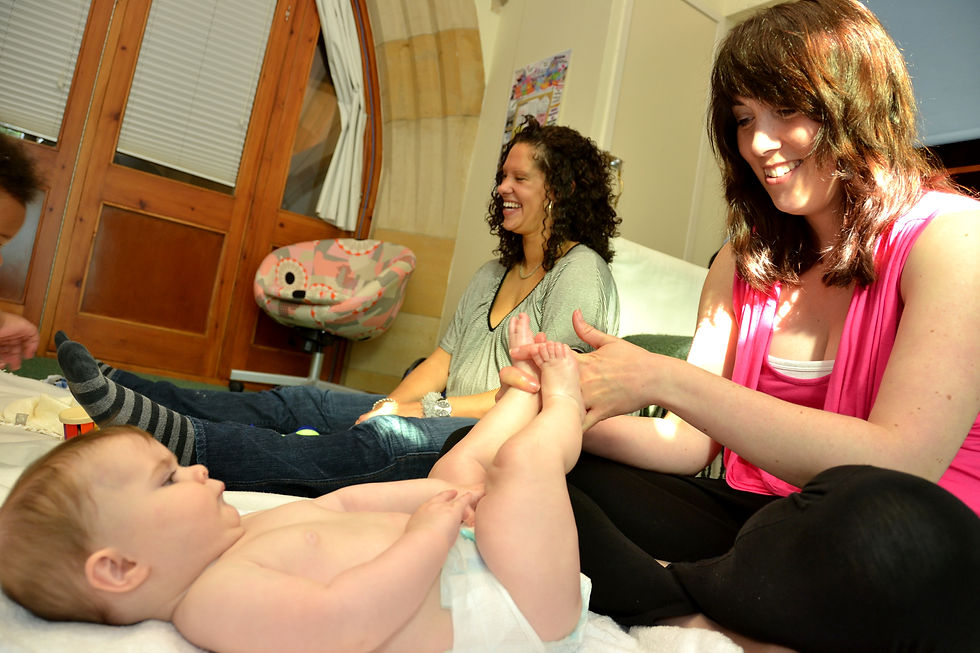Baby Massage - Infant Cues
- Crystal Miles
- Mar 2, 2016
- 3 min read
It's the moment in every new course where everybody looks at me as if I am crazy. From gazing dotingly at their babies to staring at me as if I grew a third eye. A simple suggestion - "Now we ask our babies permission for massage."
Of course soon enough it becomes second nature and a comfortable gesture but I can often see a slight hesitation, an air of awkwardness or embarrassment in that first class. Why am I asking permission to massage my baby? They can't answer me? It's my child surely it's up to me?
The truth is that our babies can answer us. They can respond to our question in many ways, it is just down to us to listen to them. If we can respond to our babies' unique needs then we can always be sure that it is safe to massage them and we can teach them healthy, respectful touch from a young age. In fact, there are really very few examples, despite conflicting advice, of occasions when we can not massage our babies, so long as we always respect their cues.

What are we looking for when we ask "would you like a massage?" By warming up the massage oil in our hands in baby's vision and asking the question, they soon become familiar with what is about to take place through their sense of sight, sound and smell and can respond to us accordingly.
Infant cues are broken down in to two main categories: Engagement cues and Disengagement cues. Every IAIM course will teach you the difference between the two and how to identify them through your baby's non-verbal and verbal communication. They can tell us so much. They can absolutely let you know that they are in the mood for a massage, or that they do not want one. That they're enjoying it, or that they have had enough for now. This is one of the reasons we never recommend massaging a sleeping baby.

As I work through each 5 week course, it is a pleasure to watch babies react to this question and witness their parents respond with love and respectful listening. On week 5 when we discuss what the course has taught us about our babies, infant cues feature highly. Not only in regards to massage but in caring for babies generally and the confidence that this understanding has given parents.
Infant massage is not just a physical experience. Although there are many physical benefits, the IAIM course is so much more than massage alone. As a certified infant massage instructor (CIMI) it does concern me when I see one off intense workshops offered or 10 minutes of 'baby massage' added to other popular baby classes advertised. Now this is not about the competition, I know how hard and rewarding it is to run a business and to support families, and I hope we all do well, but I often wonder if there is an expectation in these short time frames that may not allow for choice.
For us it is always the baby who decides if they would like to be massaged.
"Infant massage is not a fad. It is an ancient art that connects you deeply with the person who is your baby and helps you to understand your baby's nonverbal language and respond with love and respectful listening. It empowers you as a parent, for it gives you the means by which you become an expert on your own child and therefore can respond according to your baby's unique needs. Rather than growing up selfish and demanding (though all kids go through such stages), a child whose voice is heard, whose heart is full, and who is enveloped in love over flows with that love and naturally, unselfconsciously, gives of himself to others. He learns what healthy, respectful touch is by being touch that way. He learns self-discipline by watching his parents and imitating them. Thee deep emotional bonds formed in infancy lay a foundation for a lifetime of trust, courage, dependability, faith, and love." Vimala McClure






Comments